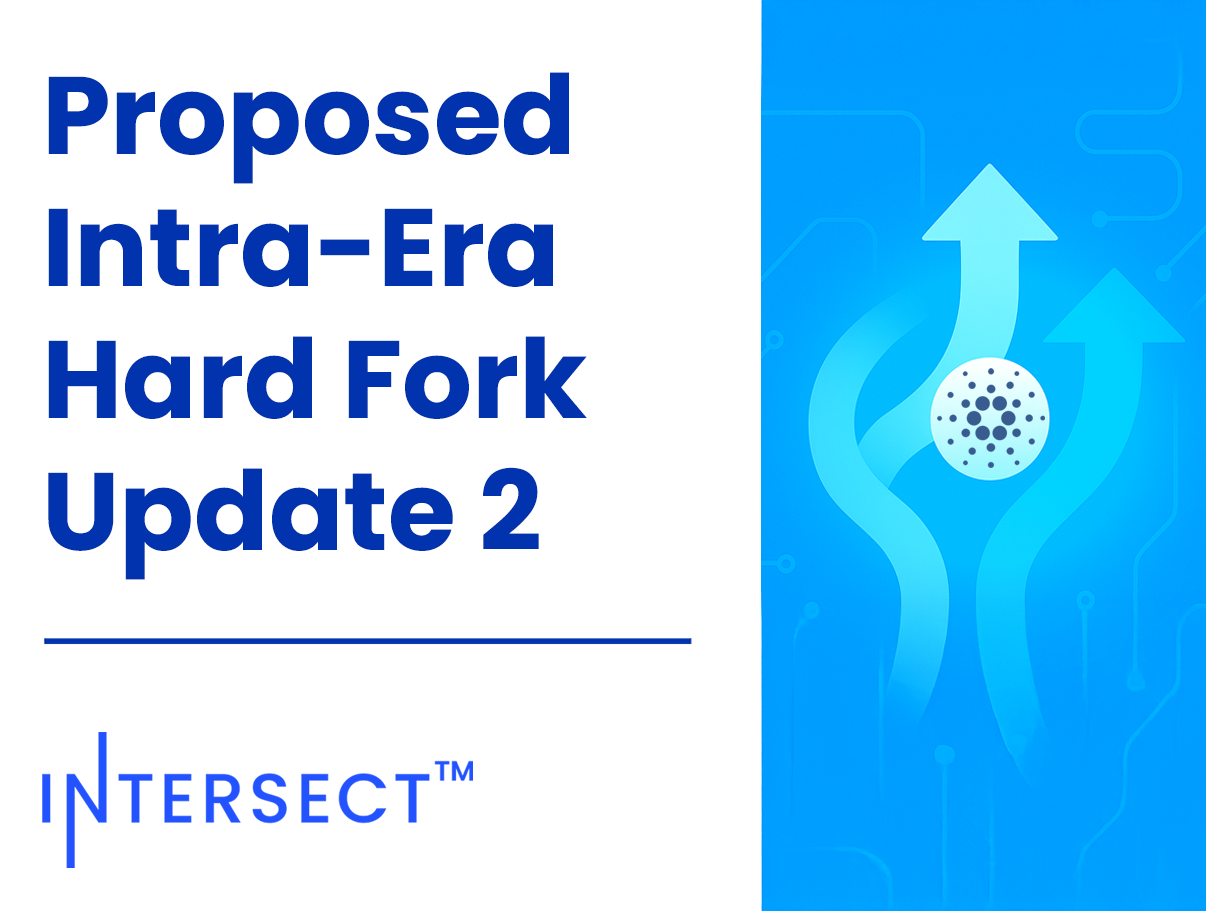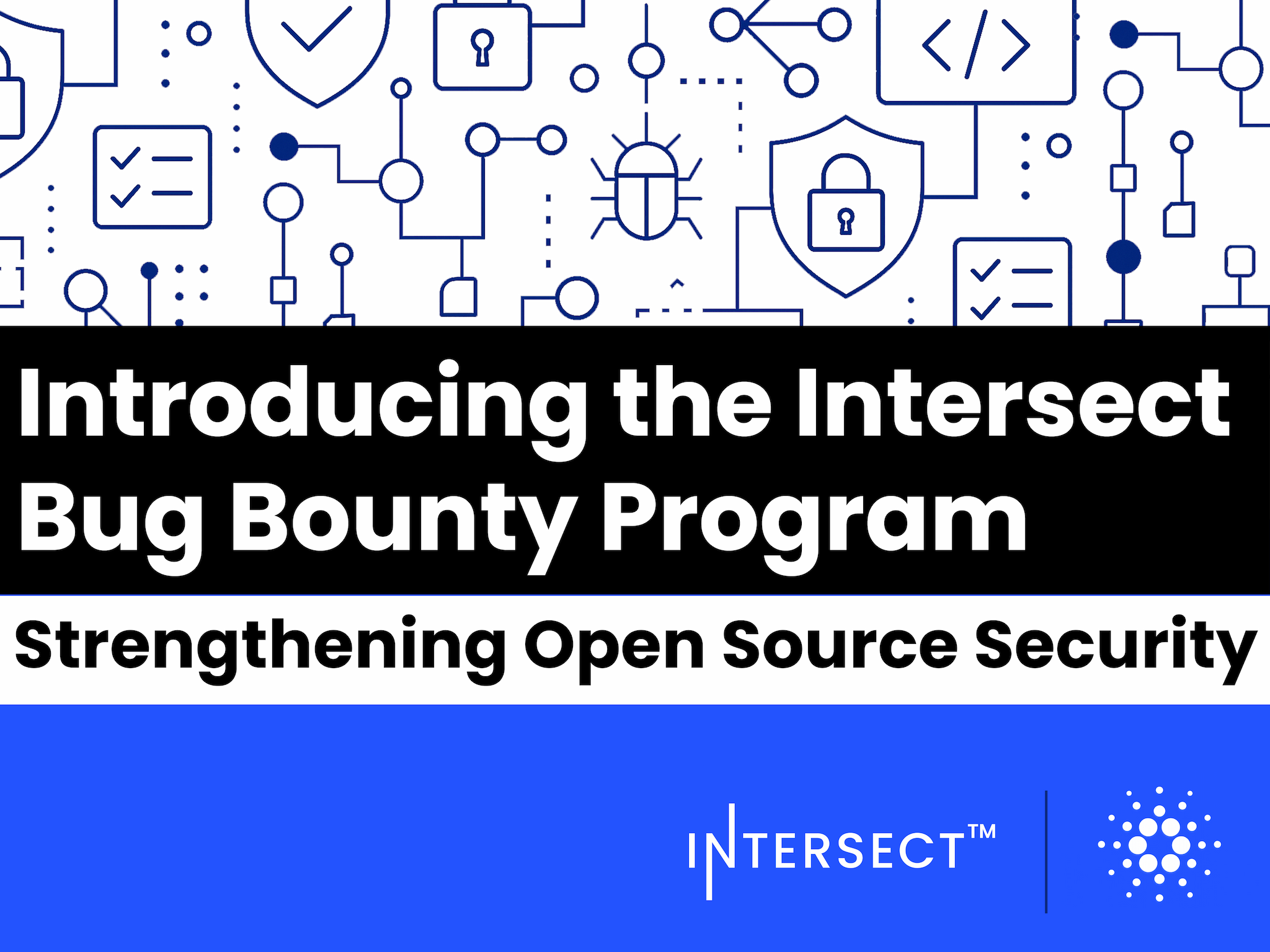Automating Accountability: Cardano’s Smart Contract Framework
As Cardano’s Treasury grows, so too does the need for robust systems to manage and distribute funds in a secure, transparent, and auditable way.

As Cardano’s Treasury grows, so too does the need for robust systems to manage and distribute funds in a secure, transparent, and auditable way. Intersect, in its role as Administrator, has developed a new smart contract framework designed to deliver exactly that.
This framework brings Treasury operations on-chain, embedding automation and transparency at every stage. It also introduces an independent Oversight Committee to provide an additional layer of verification for key actions.
Why a smart contract framework?
Treasury funds are critical for supporting projects across Cardano’s ecosystem. ada holders vote to approve budgets, but once funds are allocated, there needs to be:
- A way to hold Treasury ada securely and transparently
- A mechanism for releasing payments to vendors based on approved milestones
- Controls to ensure no single entity can act unilaterally on the movement of Treasury funds once withdrawn
- Independent verification to reduce risk and provide community confidence
This is what the smart contract framework provides. It ensures every movement of ada is visible on-chain and governed by carefully designed permissions. Intersect initiates all actions as Administrator, with an Oversight Committee acting as a procedural check on critical steps.
Two types of smart contracts
The framework uses two key smart contract types to manage Treasury operations:
Treasury Contracts
Treasury Contracts act as reserve accounts for ada withdrawn from the Cardano Treasury. These funds can only move to:
- Another Treasury Contract
- A Vendor Contract for a specific project
- Back to the Cardano Treasury if not used within the defined timeframe (or earlier where Intersect and a vendor agree)
- Or, in rare cases, to an external address for conversion purposes or to upgrade the smart contract (with strong safeguards)
Each Treasury Contract is configured with a limited set of actions and permissions:
Defined actions include:
- Fund – to allocate funds from a Treasury Contract to a Vendor Contract
- Disperse – to move funds out of the framework (requires high multi-signature thresholds and supporting rationale)
- Reorganize – to manage UTXOs within the Treasury Contract (e.g., splitting or merging)
- SweepTreasury – to return unspent funds to the Treasury after expiration
Prohibited actions include:
- Participating in staking
- Participating in governance
Vendor Contracts
Vendor Contracts are tied to individual projects approved by the community. Each one specifies:
- The vendor organization
- The total project budget
- A payment schedule with milestones
Vendor Contracts inherit their permissions from their parent Treasury Contract and are configured to release funds directly to vendors as milestones mature.
Key actions include:
- Pause – temporarily stop a milestone payment if issues are identified
- Resume – restart a paused milestone payment
- Modify – adjust contract details like dates or schedules (requires proper documentation and signatures from both Intersect and the vendor)
- SweepVendor – return unused funds to the Treasury Contract after a defined expiration period
How permissions work
Every smart contract action requires specific keys to authorize it. The permissions system ensures:
- Intersect, as Administrator, initiates all actions within the framework
- An independent Oversight Committee verifies key actions to provide checks and balances
- No single party, including Intersect, can unilaterally move or modify funds without authorization from the Oversight Committee.
- All transactions are transparent and auditable on-chain
This multi-signature model balances operational flexibility with strong controls and safeguards. It is designed to minimize discretion and focus on verifying accuracy, consistency, and alignment with governance-approved parameters.
The Oversight Committee
The Oversight Committee, made up of independent third-party organizations, provides an independent verification layer within the smart contract framework. Its role is narrowly focused on checking the accuracy and consistency of key actions, such as funding vendor contracts, approving disbursements, and reviewing modifications. The committee does not exercise discretion over governance decisions or vendor arrangements but ensures that what is implemented aligns with approved parameters and that no errors occur in execution.
A step forward for Cardano governance
This framework marks a significant evolution in how Cardano’s Treasury is managed. It provides:
- Transparency – all Treasury funds are held and moved on-chain
- Accountability – every action is logged and requires proper authorization
- Resilience – permissions are distributed to prevent unilateral control
By embedding these principles into the core of Treasury operations, Intersect is enabling Cardano to scale its funding processes while maintaining trust and security.
What’s next?
The smart contract framework will be the destination for all our Treasury Withdrawal governance actions, and will be used to manage Treasury funds and vendor payments. As this system matures, we expect it to evolve further based on community feedback and real-world use.
This is governance in motion, and it sets the stage for the next phase of Cardano’s growth.
Delegate Your Voting Power to FEED DRep in Cardano Governance.
DRep ID: drep12ukt4ctzmtf6l5rj76cddgf3dvuy0lfz7uky08jfvgr9ugaapz4 | We are driven to register as a DRep by our deep dedication to the Cardano ecosystem and our aspiration to take an active role in its development, ensuring that its progress stays true to the principles of decentralization, security, and community empowerment.DELEGATE VOTING POWER!








